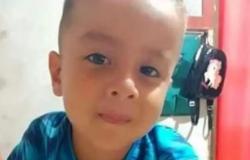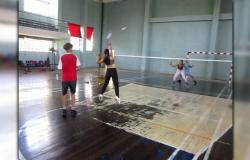On Friday, Nuria Rocandio has an exam for her degree in English Studies that she is taking at the University of La Rioja and studying at the Camp for Palestine on campus. «I want to support the cause and, instead of studying in the library or in my … home, I come here,” he explains. Lucía Sáenz, already graduated, whom she has met at the protest and who, she confesses, loves to make summaries and conceptual maps, helps her. “I don’t have anything better to do so I want to lend a hand,” Lucía admits. Although, deep down, what underlies it is the Palestinian cause. «A genocide is being committed and we cannot remain passive. I can’t make big changes, but we can put pressure on the University to take action. “It is the minimum, what everyone should do but, unfortunately, it is not done,” she believes.
The camping on the UR campus that began on May 15 is growing little by little, now with thirty tents to spend the night plus another half dozen for logistics. And the actions and activities are also growing, the latest ‘Open Classes’, in which teachers and graduates voluntarily offer their knowledge to students who want to review the EBAU, ESO, Baccalaureate and University exams.
José María Tejado, professor of Medieval History at the UR, has made himself available to the camp. “We have a tent set up exclusively as a study area, away from the rest of the activities and quieter, to be able to review concepts that may not have been clear, clarify ideas…”, describes Tejado. He has gotten involved “out of social and moral responsibility.”
On the left, Nuria Rocandio and Lucía Sáenz study at the campsite for an English Studies exam.
Sonia Third
Julio Rubio and Jorge García teach some notions of Statistics.
S. Third
A«We have a tent set up as a study area, quieter, to be able to review concepts»
José María Tejado
Professor of the U
«I want to support the cause and, instead of studying in the library or at home, I come here»
Nuria Rocandio
UR student
Jorge García, a graduate in Environmental Sciences, has also offered to teach classes. “We have graduates, teachers and the space and we offer it to whoever needs it for free,” he explains. One of those who receive these classes is Aritz Gil, a Primary Education student. “I’m signed up for Mathematics classes, everything that has to do with Statistics, and being able to review with the teachers and graduates here is being able to add, so I receive it with gratitude because it’s good for me,” he declares. “Anything that involves helping, and at the same time being able to raise awareness about the situation, can encourage more people to come, in addition to cultivating intellect,” Aritz acknowledges.
The Camp for Palestine believes that the UR “is never neutral”
The Camp for Palestine at the UR has described as “especially painful” the intervention of the vice-rector of Students, Marian Martínez, when she declared last Monday that “no one can want there to be genocides but, as a university, we have to have a neutral position in all conflicts. “The University is never neutral nor was it in the case of Ukraine,” refuted the camp, which yesterday morning went to the Rectorate showing images of the genocide in Palestine. According to the camp, the director of the rector’s office, Ferrán Mateo, promised that the Rectorate would respond to the request for a new meeting. And so did the vice-rector for Corporate Social Responsibility, Fabiola Portillo, who explained that on May 30, the Governing Council of the UR analyzed and considered the requests of the camp, so “we understand that such a meeting is not necessary.”
#Argentina





